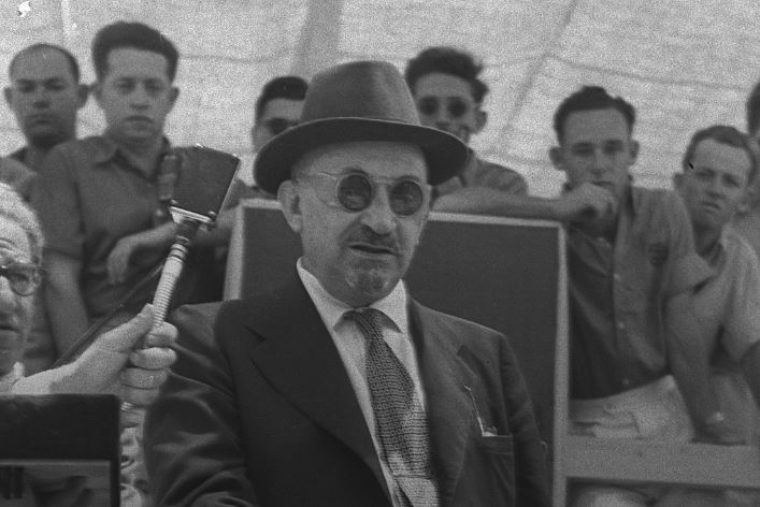“Jabotinsky also thought it essential for Jews to assume political responsibility for themselves—not only to bear Jewish arms, but to govern Jewish citizens in a Jewish state—in order to leave behind the ghetto mentality they had developed in the Diaspora. His vision of Jewish excellence, hadar, called impoverished and weak Diaspora Jews to the grandeur and magnificence that can be endowed only by sovereignty.”
“Racing Against History” by my wonderful friend, Rick Richman. Available on Amazon: https://amzn.to/2I8DgYL
In mid-June, the American Jewish Committee published a study documenting just how differently American Jews and Israelis think about the Jewish condition. On Israeli security, the American president, religious pluralism, and other issues of real consequence, the gap between Israeli and American Jews is very wide.
The historical sources of this divide are illuminated in Rick Richman’s eye-opening Racing Against History: The 1940 Campaign for a Jewish Army to Fight Hitler. In 1940, Chaim Weizmann, Ze’ev Jabotinsky, and David Ben-Gurion all made independent trips to the United States to raise a Jewish army to fight Hitler. Each mission failed. And the reasons for their failure show us that disagreements between American Jews and Israel are not new, and they are not the result of Prime Minister Netanyahu or any American president.
Britain had been the arena of Zionist diplomacy in the first years of the 20th century. But Zionist fortunes declined from the 1917 Balfour Declaration to the 1937 Peel Commission to the 1939 White Paper. British foreign policy had abandoned the Jews, embraced the Arabs, and, in the moments before war really broke out, was complicit in tightening the noose around the neck of Jewish Europe.
Chaim Weizmann, the scientist turned Zionist leader, tried to reorient British policy at every turn. He was an insider, a courtier who plied his charm in the private audience of the gentleman’s club. And on Weizmann’s 1940 trip to the United States, he operated in the same style. Richman describes private meetings with Louis Brandeis, even President Roosevelt. But it was all for naught. In Britain, Neville Chamberlain had rebuffed Weizmann’s offer of military support, and he wasn’t about to try to raise a Jewish fighting force in isolationist America. So he decided to refocus his trip on fundraising and to ask the American government to pressure Britain into relaxing its immigration restrictions in Palestine.
by Jonathan Silver



